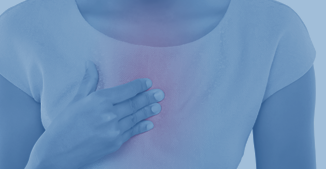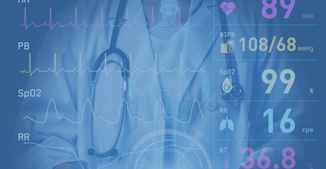
HYPERTENSION.
Arterial hypertension is a condition characterised by
the increase in blood pressure values in the arteries.
It is one of the most widespread diseases in Western countries, including Italy, and represents one of the most important risk factors for cardiovascular events (e.g. acute myocardial infarction, stroke, etc.), together with smoking, diabetes, and increased cholesterol in the blood. For this reason it is important to identify and treat it in order to prevent the damage it can cause.
Hypertension does not always manifest itself with the presence of symptoms, especially if the increase in blood pressure values occurs gradually. Many hypertensive patients, in fact, do not show symptoms and do not realise they have high blood pressure. For this reason it is essential to periodically check blood pressure: making a timely diagnosis of high blood pressure allows for preventing the damage associated with it.
When the diet and a correct lifestyle are not sufficient for keeping the blood pressure under control, treatment with specific drugs becomes important, namely, antihypertensives.
There are many anti-hypertensives available today (ACE inhibitors, Sartans, beta-blockers- calcium channel blockers and diuretics) and they act with different mechanisms. The physician chooses which anti-hypertensive is best suited to the patient, based on a series of information regarding the individual patient, the other diseases they suffer from and the characteristics of the individual antihypertensives. In some patients the use of only one antihypertensive is not sufficient for normalising blood pressure. In these cases, more than one drug is used.

ACUTE MYOCARDIAL INFARCTION.
Infarction means the death (necrosis) of the cells of a tissue (e.g. muscle tissue) due to an insufficient quantity of oxygen-rich blood reaching these cells.
y myocardial infarction, therefore, we mean the death of the cells of a part of the heart muscle due to the occlusion of one or more arterial vessels that carry oxygenated blood to the heart.
The first objective of the treatment of myocardial infarction is to reopen, by means of coronary angioplasty or coronary artery bypass, the occluded arterial vessel. The less time passes between the onset of the symptoms and the reopening of the vessel, the more heart muscle can be saved from irreversible damage.
After an acute myocardial infarction, the aim of the therapy the patient receives on being discharged from hospital (e.g. antiplatelet agents, beta-blockers, ACE inhibitors, etc.), is to prevent a second infarction episode or other complications.

HEART FAILURE.
Heart failure is a pathological condition caused by the heart's inability to contract and circulate an adequate amount of blood to meet the needs of other organs.
The causes of heart failure can be different (for example, heart failure can be the consequence of a myocardial infarction, untreated arterial hypertension, etc.).
The goal of therapy is to reduce the symptoms in order to improve the patient's quality of life, slow down the progression of the disease, prevent complications and increase survival. Among the symptoms of heart failure, we generally find the onset of oedemas (collections of fluid in the tissues) that can be treated with the use of diuretic drugs, dyspnoea (lack of breath), fatigue, cough, etc.
As with many other diseases, early diagnosis and close collaboration with the physician are important for minimising the discomfort and consequences of this disease.